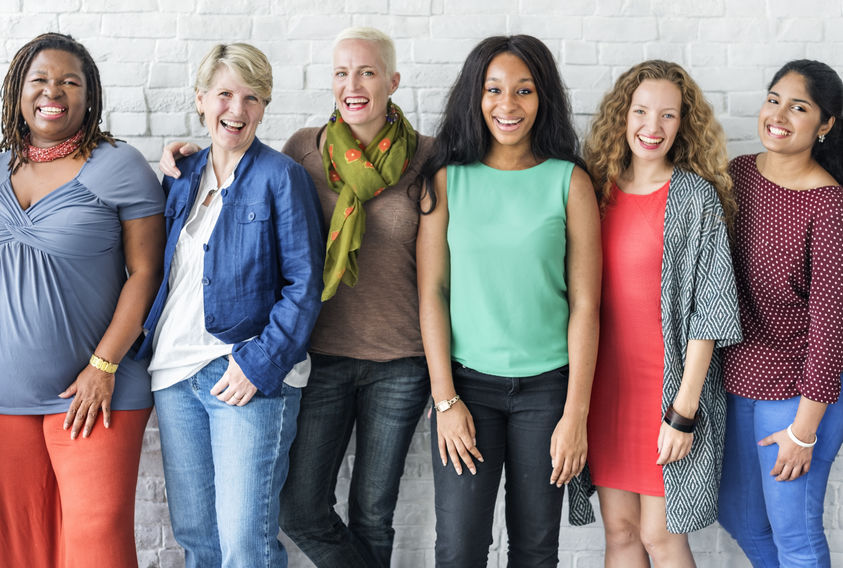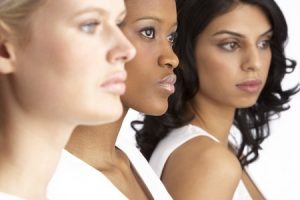 Experts are sounding the alarm on the impact of online content generated by artificial intelligence which present impossible beauty standards for women and young girls.
Experts are sounding the alarm on the impact of online content generated by artificial intelligence which present impossible beauty standards for women and young girls.According to Fox Business, 90 percent of online content in advertising will be generated by artificial intelligence (AI), which is why the major beauty brand, Dove, has decided to mark the 20th anniversary of its “Campaign for Real Beauty” as the perfect time to pledge never to use AI to represent real people in its advertising.
"At Dove, we seek a future in which women get to decide and declare what real beauty looks like – not algorithms," says Alessandro Manfredi, Chief Marketing Officer at Dove. "As we navigate the opportunities and challenges that come with new and emerging technology, we remain committed to protect, celebrate, and champion Real Beauty. Pledging to never use AI in our communications is just one step. We will not stop until beauty is a source of happiness, not anxiety, for every woman and girl,"
Twenty years ago, Dove launched their Campaign for Real Beauty with a startling statistic - only 2% of women across the globe considered themselves to be beautiful. They have spent the last two decades trying to help women to have a positive experience with a beauty standard that is accessible to everyone. They did this by challenging society, media and the beauty industry itself to widen its representation, to be transparent about digital distortion, and face-up to the harmful impact unrealistic beauty standards have on women and girls.
To mark 20 years of championing real beauty, Dove conducted a sweeping new study to understand the state of beauty around the world today. While there has been some positive change, two decades later, the state of beauty in 2024 isn't pretty, the company reports.
 Researchers spoke with more than 33,000 respondents: 19,306 respondents aged between 18 to 64 years old (14,673 women, 3,776 men) and 14,292 respondents aged 10 to 17 years old (9,475 girls, 4,753 boys). They found that in the last 20 years, the outsized value society places on appearance has intensified the pressure to be a certain type of beautiful. In its 2024 The Real State of Beauty: a global report, Dove found that 2 in 3 women believe that women today are expected to be more physically attractive than their mother's generation was.
Researchers spoke with more than 33,000 respondents: 19,306 respondents aged between 18 to 64 years old (14,673 women, 3,776 men) and 14,292 respondents aged 10 to 17 years old (9,475 girls, 4,753 boys). They found that in the last 20 years, the outsized value society places on appearance has intensified the pressure to be a certain type of beautiful. In its 2024 The Real State of Beauty: a global report, Dove found that 2 in 3 women believe that women today are expected to be more physically attractive than their mother's generation was.
Some of the key findings in the new report are:
78% of women feel pressure to look healthy 68% of women feel pressure to look slim/thin 66% of women feel pressure to look young 64% of women feel pressure to have a small waist 57% of women feel pressure to have some curves/be curvy 45% of young girls believe there is no excuse not to be beautiful, with everything that is available to women today. 36% of women said they would give up at least a year of their life to achieve their beauty ideals and 21% would give up five years of their life to achieve their ideal appearance.
With AI being one of the biggest threats to the representation of real beauty on, and 90 percent of this content expected to be AI-generated by 2025, the rise of AI is a threat to women's wellbeing, with 1 in 3 women feeling pressure to alter their appearance because of what they see online, even when they know it's fake or AI generated.
 “Despite 20 years of work to broaden definitions of beauty, women feel less confident in their own beauty than they did a decade ago," explains Dr. Phillippa Diedrichs, Research Psychologist at the Centre of Appearance Research at the University of West England and body image expert. "Representation is more important than ever. As AI technology continues to evolve, it is becoming increasingly difficult to distinguish between what is real beauty and what is manufactured by AI."
“Despite 20 years of work to broaden definitions of beauty, women feel less confident in their own beauty than they did a decade ago," explains Dr. Phillippa Diedrichs, Research Psychologist at the Centre of Appearance Research at the University of West England and body image expert. "Representation is more important than ever. As AI technology continues to evolve, it is becoming increasingly difficult to distinguish between what is real beauty and what is manufactured by AI."
FOX Business spoke with Stacy Nadeau, a Chicago-based model who appeared in the original Dove campaign and is now a parent and leadership coach, about the potential threats AI poses to females, especially girls and teens.
"AI creates unrealistic images that breed an environment that makes it hard for girls and teens to be able to discern between what is real and what isn’t," Nadeau said. "AI can perpetuate impossible beauty standards to which girls and teens compare themselves.
She continued: “Young girls and teens might feel as though they can never meet these unrealistic expectations, and that’s because they can’t — they aren’t real. It's so important for them to see real images and real women."
Nadeau has found that the teen girls she works with experience the most negative effects. "Their self-esteem is negatively impacted when they constantly compare themselves to digitally distorted images they see on social media — and with AI, this will get worse," she predicted. “Keeping beauty real means protecting and supporting young girls and teens."
Nadeau suggests several steps parents can take to combat the problem.
First, acknowledge digital distortion. "Transparency in AI use and ensuring that the AI is learning diverse versions of beauty is the only way to protect young people and their self-esteem as technology continues to evolve," she told Fox.
Second, parents of daughters need to have "open and honest conversations" about the negative impacts AI and digital distortion can have. "Educating young people and helping them own their own sense of esteem and confidence is vital," she said.
The good news is that in spite of the prevalence of impossible beauty standards online, women and girls overwhelmingly agree that real beauty means being authentic, who you are, and embracing our differences.
© All Rights Reserved, Living His Life Abundantly®/Women of Grace® http://www.womenofgrace.com
Women of Grace® is doing its part in helping women and teens to rise above the beauty standards of the world by teaching them how to embrace their God-given beauty as Daughters of the Most High God through the Women of Grace® Foundational Study Program and the Young Women of Grace® program for teen girls. Click here to find out how to bring these vital program to your school, church, or community.
